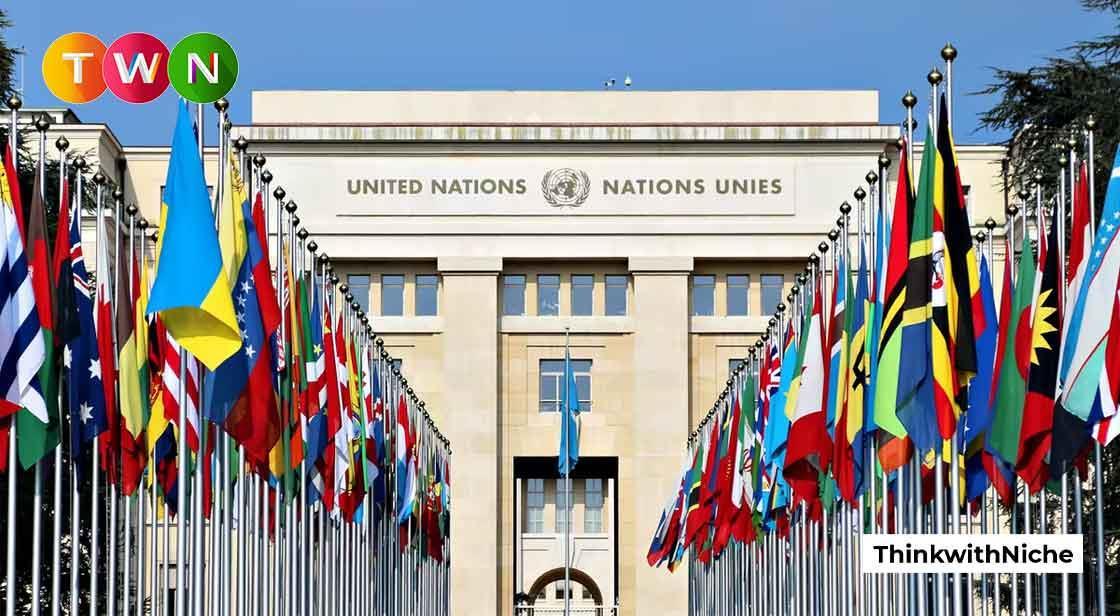United States Challenges DEI and Gender Policies at the United Nations

News Synopsis
The United States has issued warnings to key U.N. organizations, including UNICEF and UN Women, urging them to refrain from emphasizing diversity, equity, inclusion (DEI), and gender ideology in their policies and operations.
This shift aligns with the policies of U.S. President Donald Trump, who has been aggressively working to dismantle DEI initiatives and any advocacy of gender ideology in federal institutions. His administration has also encouraged private entities to follow suit.
With the U.N. now in Washington’s crosshairs, concerns are mounting that this could lead to significant funding cuts, potentially costing U.N. agencies billions of dollars in voluntary U.S. contributions. Billionaire Elon Musk has echoed these sentiments, stating, “America provides way too much funding to the U.N. and associated entities.”
US Halts Engagement with Key UN Bodies
Over the past few weeks, Trump’s administration has taken a series of steps that have sent shockwaves through the global diplomatic community:
-
The U.S. has ceased its engagement with the U.N. Human Rights Council.
-
A funding freeze on the U.N. Relief and Works Agency for Palestine Refugees (UNRWA) has been extended.
-
A comprehensive review of U.S. contributions to the U.N. Educational, Scientific and Cultural Organization (UNESCO) has been initiated.
As the U.N.’s largest financial contributor—providing 22% of the core U.N. budget and 27% of the peacekeeping budget—the U.S. holds significant leverage over the institution. Notably, the U.S. currently owes the U.N. approximately $2.8 billion, a sum that is not part of voluntary contributions.
US Opposition to DEI Sparks Unprecedented Vote at UNICEF
Historic Vote on Routine Documents
During the recent UNICEF and UN Women executive board meetings, the U.S. voiced its opposition to DEI and gender ideology being promoted by either organization. This opposition led to the first-ever vote in the 36-member executive board of UNICEF, which was established in 1946.
The U.S. attempted to amend official UNICEF documents to remove DEI and gender ideology initiatives, citing concerns that such policies undermine merit and equality. The proposed amendments included language urging UNICEF to “scrap DEI or gender ideology programming” in favor of promoting “equal opportunities for all” and recognizing “biological reality.”
Following the vote, Eritrea’s deputy U.N. Ambassador Amanuel Giorgio, representing eight African board members, expressed strong support for DEI programs within UNICEF, stating that they are crucial “to ensure that no child is left behind.”
US Diplomat Criticizes DEI at the UN
Jonathan Shrier, a U.S. diplomat, reinforced Washington’s stance, arguing that DEI and accessibility programs violate U.S. laws by prioritizing “a divisive and dangerous preferential hierarchy” over merit-based policies. He further stated, “It is U.S. policy to recognize two sexes, male and female, and not to promote gender ideology.”
UNICEF responded to the debate by acknowledging the concerns of board members, stating that it remains committed to safeguarding the rights of all children worldwide.
UN Agencies Take Precautionary Measures
UN Food Program Adopts a Cautious Approach
In light of Washington’s policy shift, the World Food Programme (WFP)—which is headed by American Cindy McCain—has urged its staff to modify their language when discussing diversity initiatives. An internal memo advised employees to use “descriptive language rather than specific nomenclature” and to avoid controversial terms like LGBTQI+ and SOGIESC (sexual orientation, gender identity, expression, and sex characteristics).
The WFP, which received $4.4 billion in U.S. funding in 2024, did not publicly comment on these recommendations.
UN Women Faces Pressure to Rethink Strategy
UN Women, the U.N. entity focused on gender equality, also faced pressure from Washington to shift its focus away from “radical causes such as DEI and gender ideology.” U.S. officials have argued that these programs are “demeaning, unfair, and dangerous to women and girls.”
UN Women’s Executive Director, Sima Bahous, diplomatically responded to the criticism, stating, “UN Women always embraces any review of our work.” In 2023, the U.S. contributed $19 million to the agency.
UN Defends Its Commitment to Human Rights
U.N. spokesperson Stephane Dujarric reaffirmed the organization’s dedication to its founding principles, highlighting that the U.N. Charter aims “to reaffirm faith in fundamental human rights, in the dignity and worth of the human person, in the equal rights of men and women and of nations large and small.”
Despite U.S. opposition, several U.N. member states and international organizations continue to advocate for the protection of DEI policies as part of a broader commitment to human rights and social justice.
Conclusion
The U.S. crackdown on DEI and gender ideology at the United Nations signals a major shift in its approach to global governance and diplomacy. With Washington wielding its financial influence, U.N. agencies are under pressure to reassess their policies or risk losing crucial U.S. funding. As the debate continues, the future of diversity and gender inclusion at the United Nations remains uncertain. The global community now watches closely to see how the U.N. will navigate these new challenges while upholding its foundational principles.









